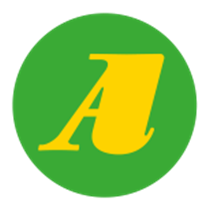Assessment
Why do we assess?
Our assessment provides valuable information to help children, teachers, parents and school leaders to acknowledge, analyse and review achievements and progress in learning against expected standards. Our assessments inform our immediate and long term planning and gives:
- Learners an understanding of where they are secure, what it is that they need to do to rectify any gaps and the next steps needed to extend their learning
- Teachers the detailed knowledge of their pupils' achievements which they can use to inform future learning, their planning and their teaching
- Parents and carers regular reports on their child's progress in meeting expectations and ensures that teachers, pupils and parents can work together to secure learning and raise standards for all children
- School leaders and governors information that they can analyse and use to make decisions about future actions to improve standards, learning and teaching in the school
- External agencies and partners (such as those schools organisations in which a pupil will receive the next stage of his/her education, or the Council, the DfE and Ofsted) the evidence that a school knows its pupils well and sets and maintains high standards in learning and teaching as part of the school's public accountability to its pupils' future.
Statutory Assessment
Teachers carry out day to day assessments and checks on pupils' understanding and progress as part of their day to day teaching. Statutory, formal assessment procedures and examinations also exist to measure attainment against national standards. Our pupils' achievements are compared nationally with all those pupils of the same age and against schools in the local authority and in England. These formal assessments include:
Early Years Foundation Stage assessment
We monitor how well pupils are achieving and the extent to which they are meeting identified expectations in the Early Years Foundation Stage Profile which helps to identify those who are achieving a good level of development and those who we need to give additional help.
The Phonics Screening Test at the end of Year 1
It assess pupils' phonic skills as part of early reading.
End of Key Stage 1
Schools currently draw on a test and teacher assessments to help us to assess whether pupils are making progress and are achieving national expectations in reading, writing and mathematics. These expectations are given in the form of age expected statements that children must meet by the end of Year 2. Our teachers also assess pupils' achievements in speaking and listening and science.
End of Key Stage 2
Pupils take statutory tests that assess whether pupils achieve national expectations in Reading, English Grammar, Punctuation and Spelling and Mathematics. Children's writing is assessed against a set of age expected statements. Progress is also measured from the end of Key Stage 1 to the end of Key Stage 2.
Teacher Assessment
At Argyle we believe that knowing what each child has achieved and what their next steps are is crucial to helping them to succeed. in order to know this we regularly assess the children. This happens in different ways:
- Through questioning and discussion, teachers find out what children know each lesson.
- High quality written and oral feedback help both the teachers to know how the children are doing and the children to understand their own learning.
- Through looking carefully at the learning in the children's books and their achievements and identifying these on the learning journeys that are kept in children's books.
- Teachers also track children's progress and attainment using the online 'Target Tracker' tracking system.
Summative Assessment
As a school we have established a timetable of summative assessments at regular intervals throughout the year for years 1-6. The results of these are used to support teachers' judgements and monitor children's progress and attainment.
